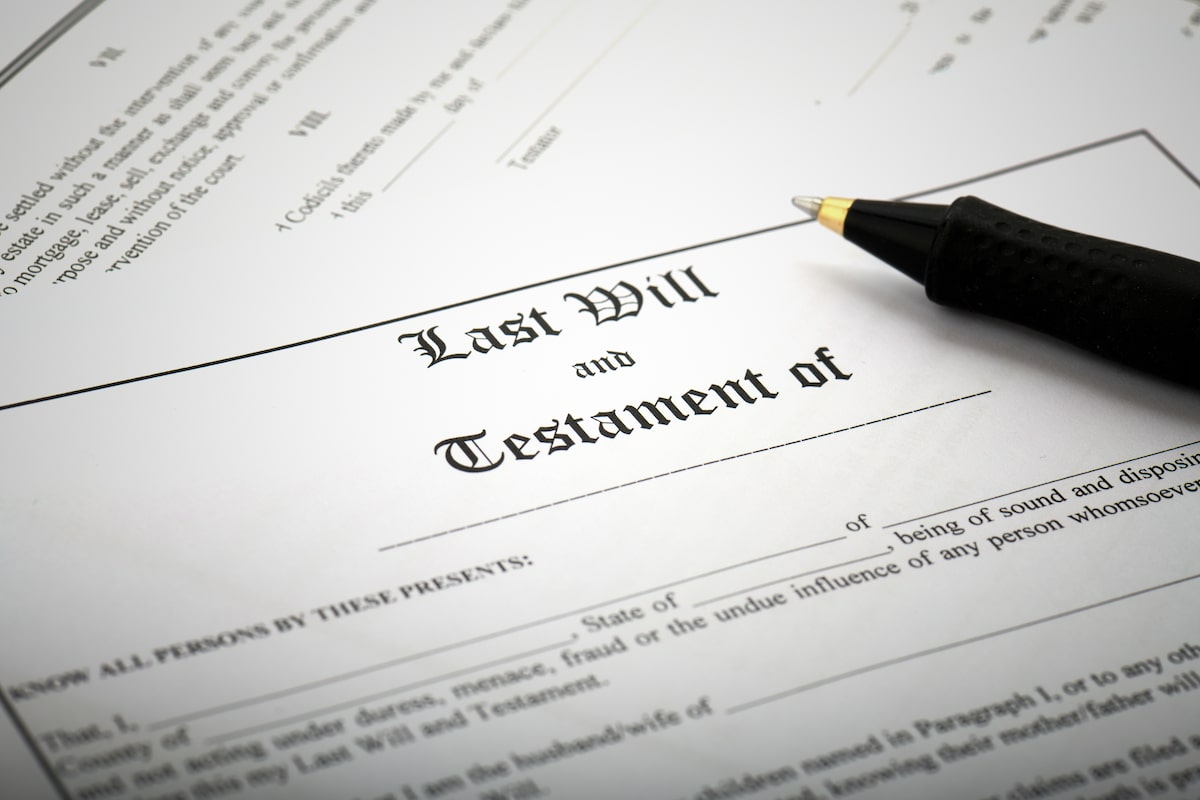Keeping your will at your lawyer’s office is always a good idea so you – and your executor – know where to find the original copy.roberthyrons/iStockphoto
My great Uncle David was a quirky person. When he died, our family had a problem: No one could find his will. Everyone was sure he had one. And I thought it would have had some strange provisions, so I was looking forward to reading it. But alas, it was never found.
There are many issues that can arise with wills. Today, I want to share some court cases that highlight some all-too-common issues.
Your will is lost
In the case Finsant Estate, 2024 BCSC 217, the deceased’s will was lost. It was known that Ms. Finsant had prepared a will in 2001 which had named her grandniece, Megan Beggs, as her sole beneficiary. Ms. Beggs asked the court to give effect to the lost will. But the administrator of the estate asked the court to confirm that the woman had died intestate (without a will).
If a will was known to be in the possession of the person who made it, and it’s lost, it’s generally presumed that the person deliberately destroyed it. This presumption can be rebutted but it requires “clear and convincing evidence.” Ms. Beggs couldn’t provide this, so the court ruled that her great-aunt died intestate.
Here are the most common mistakes lawyers see in wills – and how to avoid them
In the case Sorkos v. Cowderoy, 2006 CanLII 31722 (ON CA), the presumption of destruction didn’t apply because the original will was not in the hands of the deceased when it went missing.
The tip? Make sure you – and your executor – know where to find the original copy of your will. Keeping it at your lawyer’s office is always a good idea.
Your capacity is questioned
Richard (Dicky) Moore was a legendary NHL player and entrepreneur who died on Dec. 10, 2015. He was survived by his two adult children – a son and daughter. In the case Succession de Moore, 2024 QCCS 1211 (Quebec Superior Court) his daughter contended that Mr. Moore’s last will was invalid owing to lack of cognitive capacity or undue influence when he signed it in 2014. The will left her assets in a trust with very strict provisions when it came to accessing her inheritance.
Mr. Moore’s mental capacity at the time he signed his last will was in decline. His doctor testified: “We are faced with a cognitively vulnerable individual, making a new will departing from his previous one, in an atmosphere of urgency, involving the presence and participation of many persons, the changes leading to significant implications while the testator’s understanding and appreciation have not been assessed while on his own.”
In the end, with the exception of some particular bequests, Dicky Moore’s last will was annulled (although the case is under appeal).
In Di Nunzio v. Di Nunzio, 2022 ONCA 889 (CanLII), Rosalba Di Nunzio died on July 20, 2018. She had prepared a will in 2017 and appointed one of her daughters as sole beneficiary and executor, while disinheriting her other daughter. Her disinherited daughter claimed that the will was invalid based on suspicious circumstances, lack of capacity, and undue influence. The evidence showed that the disinherited daughter had a rocky relationship with her mother for many years.
The court referred to the decision of Vout v. Hay, 1995 CanLII 105 (SCC), which held that if a will is executed and complies with formal requirements and the testator knew its contents, a rebuttable presumption arises that the testator had the necessary capacity. In the Di Nunzio case, the court found that the disinherited daughter could not rebut the presumption and could not establish suspicious circumstances. The daughter lost the case – and again on appeal.
Your will violates public policy
In the case Lam v. Lam Estate, 2024 BCSC 1561, the deceased gave her son gifts during her lifetime and through her will – totaling almost $3-million, while her daughter was given gifts worth about $170,000, and a 50-per-cent share of a property. The daughter wanted the court to vary (change) the will on the grounds that the disparity was based on cultural gender biases.
The court acknowledged the need to balance what is just and equitable with testamentary autonomy and so increased the daughter’s interest by giving her 85 per cent of the property in the estate. The court held that the mother’s gender bias did not meet contemporary standards of fairness.
In an Ontario case, Spence v. BMO Trust, 2016 ONCA 196, the court did not vary the will based on a racially motivated provision (the deceased disinherited his daughter for what appeared to be her decision to marry a white man), affirming the testamentary freedom to discriminate in a will – unfortunately.
While many estate law principles are similar across Canada, you need to know that wills are governed under provincial and territorial law. So, the results of a particular issue could differ depending on your jurisdiction.
Tim Cestnick, FCPA, FCA, CPA(IL), CFP, TEP, is an author, and co-founder and CEO of Our Family Office Inc. He can be reached at tim@ourfamilyoffice.ca.
